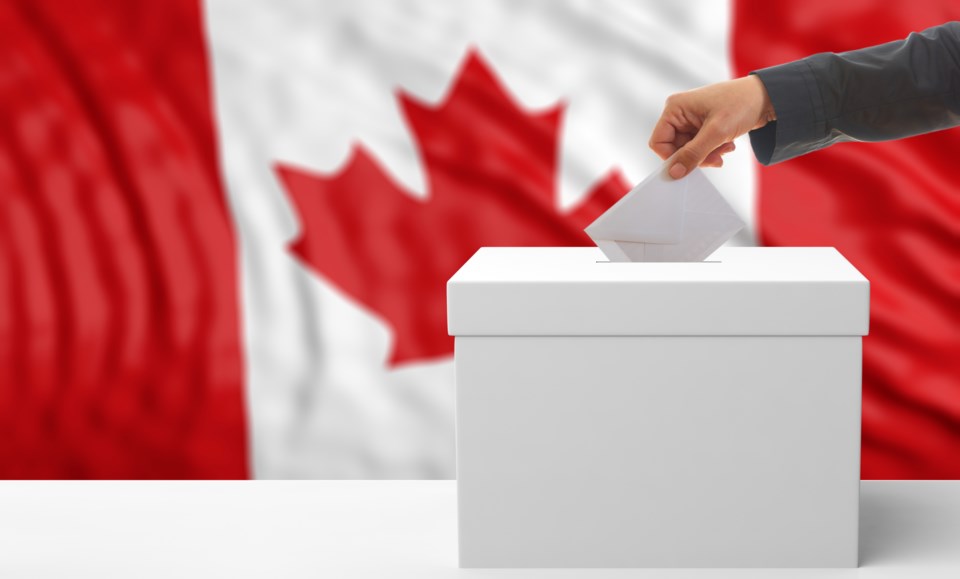Just like that, Canada’s 45th general election is over nearly as quickly as it began.
The Liberal Party’s Patrick Weiler will return for a third term, under a minority government led by Prime Minister Mark Carney.
For many Canadians west of the Great Lakes, federal elections can often be an exercise in frustration, if only for the fact our new government is often decided before many of us have even cast a ballot.
This year’s vote was at least somewhat unique in that the final results weren’t known until well after polls across the country had closed, and B.C.’s results were at least for once consequential in the grand scheme of things—but the sense of Western alienation isn’t about to subside anytime soon.
One assumes addressing that little pickle will be among Carney’s first tasks—Canada needs unity now more than ever, as an army of bots and actual traitors throw a predictable secession tantrum—but if he really wants to cement his legacy for generations to come, he’ll do what his predecessor didn’t have the guts to do.
He’ll deliver on proportional representation, once and for all.
Asked about the possibility at an April 25 campaign event in Sault Ste. Marie, Carney had this to say about it: “There may be a point where we’ve advanced on other immediate pressing priorities, particularly the [economic] crisis—that’s our intention—that those more structural issues in our democracy can be addressed.”
Not exactly a rousing endorsement of electoral reform, but at least it’s not an outright dismissal.
It may seem like a boring, unsexy policy point to argue for, but if Canada doesn’t do something about its current first-past-the-post system, the political alienation will only grow. The results of this week’s election—the Liberals with 169 seats to the Conservatives’ 144, while the Bloc Quebecois (22), NDP (seven) and Green Party (one) pick up the scraps—effectively reduce us to a two-party system.
How many people cast a vote in this election that was not fully aligned with their beliefs or values? How many voted out of fear, peer pressure, or what they felt was a necessity? How many have been doing so for more elections than they care to count?
Worse, how many don’t bother to vote at all?
With proportional representation (supported by 68 per cent of Canadians, according to a national poll by EKOS in late January), Canadians could ditch the talk of strategic voting and vote their conscience.
In the simplest terms, proportional representation means the percentage of seats a party has in the legislature reflects the percentage of people who voted for that party. In other words, if a party gets 40 per cent of the vote, it should get 40 per cent of the seats—and no parties should form a majority when they clearly don’t represent the majority of the people… as is so often the case here in Canada.
It would mean a collection of MPs from all parties, working together to represent the constituents who elected them, and removing the winner-take-all system would presumably disincentivize the aggressive, divisive tactics infecting our politics of late.
More than 90 countries use it, to great success, and if not for Justin Trudeau’s famous broken election promise—that the 2015 election would be Canada’s last using first-past-the-post—Canada would already be counted among them.
Would we all be holding hands and singing kumbaya under the country’s biggest Maple Leaf? Not bloody likely, but at least we’d all have proper representation and a seat at the table.
The West Vancouver-Sunshine Coast-Sea to Sky Country riding’s slate of candidates in the 2025 election can almost serve as a microcosm of why proportional representation is so necessary.
Go watch the recording of the Whistler all-candidates debate, while keeping your own partisan preferences tucked safely to the side (easier said than done for many), and consider the different viewpoints being presented.
The bulk of the questions were predictably directed at the two front runners, representing the Liberal and Conservative parties, but the most enlightening moments arguably came when the other candidates got the mic.
Peyman Askari, the Iranian immigrant with a sharp intellect and a principled defence of Libertarian values, representing the People’s Party; the Green Party’s Lauren Greenlaw, the lone female voice and a fierce advocate for the environment (also, her name is an aptronym, a word I just learned this week); Jäger Rosenberg, the 18-year-old NDP upstart arguing passionately for progressive policies and the most vulnerable; the Rhino Party’s Gordon Jeffrey, with his refreshing satirical voice and cutting jabs at the establishment parties.
Under our current system, all of that robust debate, those crucial differing viewpoints, are whittled down to what you see on the surface—another Liberal victory in the riding.
And so it’s only natural so many feel disillusioned with our politics, and the results we get at the ballot box.
This is not to take away from Weiler, who has been a hard worker and an effective representative for Whistler and the Sea to Sky.
But one hopes he’ll use his presumably growing influence in the Liberal Party to help lead the charge on electoral reform—and make the 2025 election the last held under first-past-the-post.




